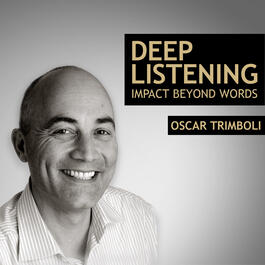
Excerpt from Chapter 2 of how to listen - the most comprehensive book about listening in the workplace
Chapter 02 - Listening starts before the conversation commences It’s a beautiful autumn day, and Tina, a busy working mom, is in her car on the way to pick up her three-year old daughter from daycare. It’s a twenty-five-minute drive from Tina’s work to the daycare center, and Tina is finalizing a work call with Fatima while driving. Tina had expected the call to take ten minutes. Unfortunately, the conversation is longer than expected and ends up taking the entire distance. She parks her car and continues the discussion with Fatima while she walks. When she reaches the front gate of the daycare center, she takes another ten minutes to finish the call. Eventually, she hangs up and goes through the doorway to collect her daughter. Although Tina has disconnected the phone call, she still hasn’t disconnected her mind from the issues and actions covered in the discussion—so much so that even at the door to the center she is still ruminating on Fatima’s questions. Tina’s daughter is excited to see her mom; she runs and gives her a hug, bursting to tell her about her day. Her daughter launches into a wonderful story about adventures, friends, and the most specific details about castles, bridges, and rivers. Showing her daughter how interested she is, Tina asks her lots of questions. “Who was that?” “What did you do next?” “What did you like about that?” As Tina puts her daughter into the car seat, her daughter announces, “Mummy, why are you bumping my words?” If her daughter was an adult, she would have said, “Stop interrupting, please!” Tina’s enthusiasm for her daughter’s story is what everyone wants to experience when they are talking, right? Show interest, ask relevant questions, and pay attention. Yet her daughter experienced someone who was constantly interrupting her. Tina’s daughter wanted to tell her story—entirely, completely, and without interruption. She tried to tell the story from start to finish without questions, reactions, or solutions. Tina’s questions created a disjointed conversation. Perhaps you’ve had this experience on either side of the conversation. Many people think that listening is about questioning. When your mind is absent or wandering, these questions appear random to the speaker rather than something that expands the conversation. Aimless and arbitrary questions waste the speaker’s time and diminish the relationship. Tina thought she was listening. As they drive off, her mind divides very quickly as more issues from Fatima’s call come to mind. The monkey in her mind is winging from branch to branch, between the present, past, and future. Her discussion with her daughter is interrupted by the phone ringing—it is Fatima again, and Tina has a decision to make about whether to answer the call or focus on her daughter. Whether it’s a phone call or our next meeting, our divided attention is one of the first barriers to listening. No matter how strongly you intend to bring your attention and focus to a conversation, listening commences before you arrive at the discussion. Do you relate most to Tina or her daughter? Listening commences before the conversation, what routines and rituals do you use to bring your attention and presence to the upcoming discussion? If you would like to more, I invite you to explore you can find the book via this link
From "Deep Listening - Impact beyond words - Oscar Trimboli"


Comments
Add comment Feedback